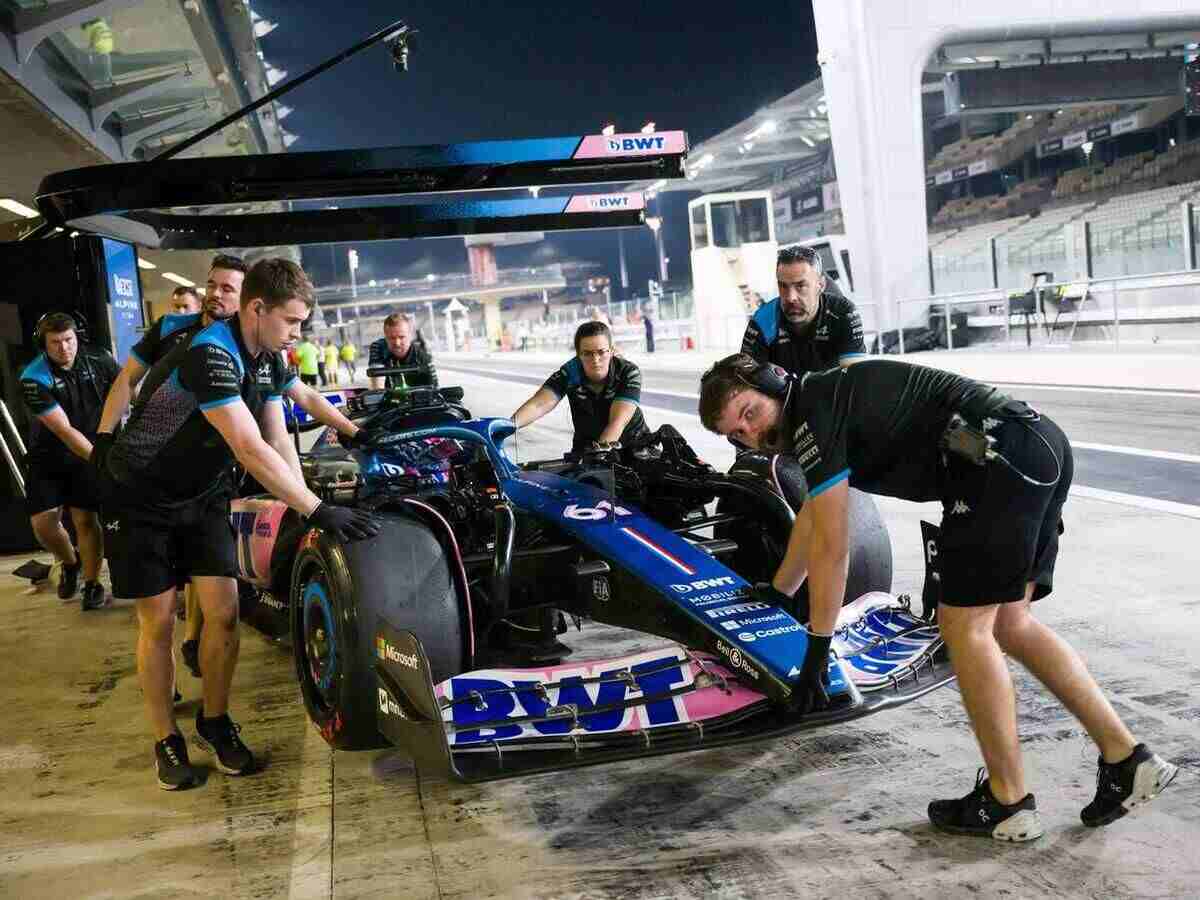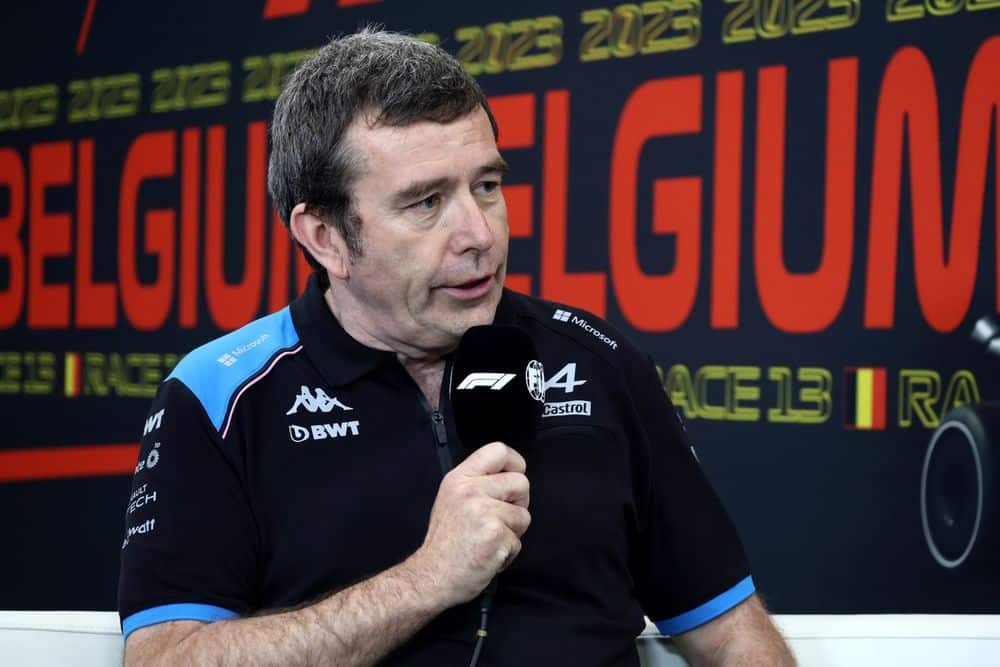Alpine opposes rumored ‘unacceptable’ alterations to the 2026 engine regulations
Alpine are one of the six manufacturers announced for the revamped 2026 engine regulations.

Alpine at Yas Marina Bay Circuit (Via IMAGO)
The 2026 Formula 1 season heralds a groundbreaking era of sustainability, focusing on fully sustainable fuels for net zero CO2 emissions. The upcoming power units, fueled by non-food materials and atmospheric resources, signal a paradigm shift. A 50:50 power distribution between the combustion engine and electrical output is set to redefine the racing landscape.
Dyno testing for these innovative power units is underway, with the FIA firmly committed to maintaining the equal power split. Chassis regulations, concurrently in development, aim for a lighter and more aerodynamic profile. The FIA’s plan includes a 50kg weight reduction, coupled with adjustments to size and aerodynamics, enhancing straight-line speed with active front and rear wings.
However, simulator data has sparked worries about abrupt deceleration on straights and gear downshifting, stemming from intense battery regeneration, resulting in a loss of 470bhp electric power. Red Bull’s Christian Horner fears the new rules may overly complicate cars and impact the racing spectacle. Alpine’s acting team principal, Bruno Famin, exudes confidence that 2026 chassis rules will counterbalance potential engine reductions.
Speaking to Motorsport.com, Famin delves into the timeline of regulatory decisions saying;
What I have to say is that, now the PU technical regulation has been officialised quite a long time ago, one and a half years ago almost.
Famin stated F1 has made crucial choices in technology development and deems alterations at this stage as unacceptable;
Changing now won't be a good thing. It's not acceptable, clearly.
Bruno Famin believes that there is “no hurry” to work on the energy management
A few months back, Alpine aimed to contest the 2026 engine rules, especially the power split. Their proposals lacked unanimous team support, leading the FIA to review and subsequently close the matter. Mercedes’ Toto Wolff was particularly against it and asserted that he won’t let the French outfit to mess with the rules. Alpine’s concern revolved around a power gap compared to Ferrari, Mercedes, and Honda units, which displayed higher potency.

F1 has taken a strong stance to meet its sustainability goals and the 2026 engine regulations are a part of it. Acknowledging the evolving landscape, Famin shifts focus to the future, particularly on energy management. “I think the energy management, we can still work on that in the coming months. There is no hurry,” he remarked.
Toto Wolff says Alpine are playing up their power unit issues:
— The F1 Journal (@thef1journal_) August 27, 2023
“How we designed the regulations was that for 2026, if one of the constructors would fall outside of 3% to the best power unit, we would allow them to have more dyno time and we would act in best faith and find
In conclusion, the 2026 F1 season ushers in a sustainable era with innovative engine and chassis regulations. Despite concerns and debates, the sport stands firm in its commitment to sustainability. Alpine, having faced setbacks, looks ahead, emphasizing the ongoing pursuit of efficient energy management for future advancements.
In case you missed it:
- Max Verstappen claims he can’t do ‘much better’ than his incredibly dominant 2023 F1 season
- UK Government hails Red Bull for 2023 F1 season victory touting it a ‘sporting achievement that cannot go without comment’







